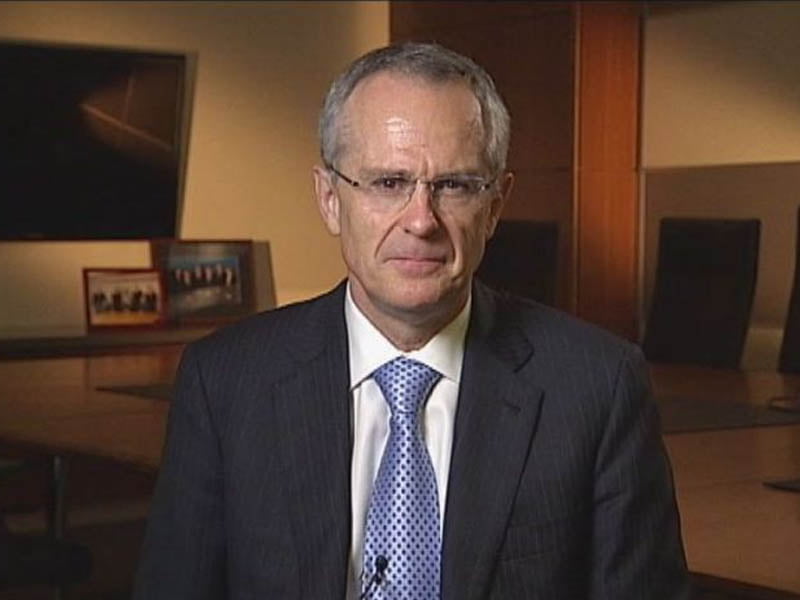The Australian Competition and Consumer Commission is now reliant on just-in-time legislation and the rapid rollout of report recommendations in order to perform its role in an increasingly digital economy.
In August last year, Parliament passed the long awaited Competition & Consumer Amendment (Competition Policy Review) Bill 2017, finally accepting recommendations from the 2015 Harper Review.
During an interview with The Establishment in late 2017, ACCC Chairman Rod Sims said that these are “extremely important fundamental changes to the Act,” that introduce a workable misuse of power condition.

“Previously we had no real effective provision; now we have,” Mr Sims said.
“To illustrate that, if you had algorithms that were owned by different companies that started to communicate with one another to push prices up, the concerted practices law could now deal with that. Previously we couldn’t.
“And if you have alternatively companies using algorithms to keep competitors out, now we have a law to deal with that with the new misuse of market power provision whereas before we didn’t. We have the powers we need – but we only just got them this year.”
Just in time.
And what about ensuring consumers are properly protected against a misuse of their personal data?
It was, until late last year, Mr Sims’ most pressing concern, but he said; “I think that has been sorted out by the Productivity Commission’s Open Data recommendations. We are 150 per cent – if that’s possible –behind those recommendations.
“We think that solves the problem – it’s a really really clever idea and says we are not constraining what a company can do – we are empowering consumers to use their own data, and that is such a lovely solution to the problem.”
He sees the recommendations as a way to have data actually promote competition and deliver better outcomes for consumers. That is, if the Government acts on the recommendations in time.
Mr Sims acknowledges that the Government has so far provided only a rather low key endorsement of the recommendations; “But I read into that that the Government will be embracing the Productivity Commission’s recommendations.
“If we want to solve the data problem or embrace the data opportunity – either way – if the Government can adopt the Productivity Commission’s Access to Data recommendations then I think we have the answer to that issue.”
Mr Sims describes the role of the ACCC simply as “to make the market economy work as it should.”
“Our market economy is based on companies competing against each other and giving much better outcomes for consumers. It works very well. The profit motive is often a force for good outcomes, but it only works if there is sufficient competition and if consumers aren’t lied to.”
The biggest challenge that the organisation faces, he says, is managing expectations.
The Commission has just 65 consumer investigators and 65 competition investigators working across Australia.
Mr Sims says the organisation could do significantly more with an additional 10-20 per cent more resources.
“We don’t have the resources to take action against everyone that breaches the Act. We’re not resourced for that,” he said.
“We have to make choices about what we think the big issues are – but emerging sectors such as algorithms and artificial intelligence, they are sufficiently large to be well up there on our radar.”
Blockchain-based businesses also have Mr Sims’ spidey-senses twitching.
“We will take a great interest in blockchain because it has the power both to mislead people and to exclude people. We embrace the technology but are watching to make sure it is not excluding some players from the market or causing misleading conduct.”
He says that enforcement actions are selected carefully to send clear messages to the market about acceptable behavior.
“That’s tremendously powerful so our enforcement role always sets the boundaries of what you can and can’t do and that is why we are selective – and why we will focus on algorithms, AI (Artificial Intelligence) at the appropriate time to send messages about what is acceptable.
“Companies are very good at following the law provided they know what it is and they know there is consequences if they don’t,” he adds.
The other string to the ACCC’s bow is its role as the telecommunications economic regulator for which it has additional resources.
Late last year it announced its public inquiry to determine whether the national broadband network’s wholesale service standards are appropriate, and has invited public comment until 16 February.
“Our role to do what we can to promote competition and make sure consumers aren’t lied to and that way the economy works as it should,” says Mr Sims.
“Technology is helping us a lot – bringing more competition – it’s pretty much an unambiguous plus from where we sit. We embrace it as it’s bringing new players into the market,” he said.
“If we have a concern it’s that it’s not happening fast enough – for example we hear a lot about fintech – but is anything really happening there in terms of real competition for the banks?”
“Technology is something we embrace, it promotes competition. We’ve just got to be on the lookout for new ways particularly that companies might find to mislead consumers.”
The Government sent a warning shot over the bows of the emerging algorithmic economy in December when it directed the ACCC to conduct a digital platforms inquiry.
That will explore the impact that digital search engines, social media platforms and other aggregation platforms including Google and Facebook are having on competition.
“As we get new technologies we need to understand what they can and can’t do and whether they are being used in a way that breaches the Act – but in any event make sure that consumers know what is going on.”
Just in time.
Do you know more? Contact James Riley via Email.

